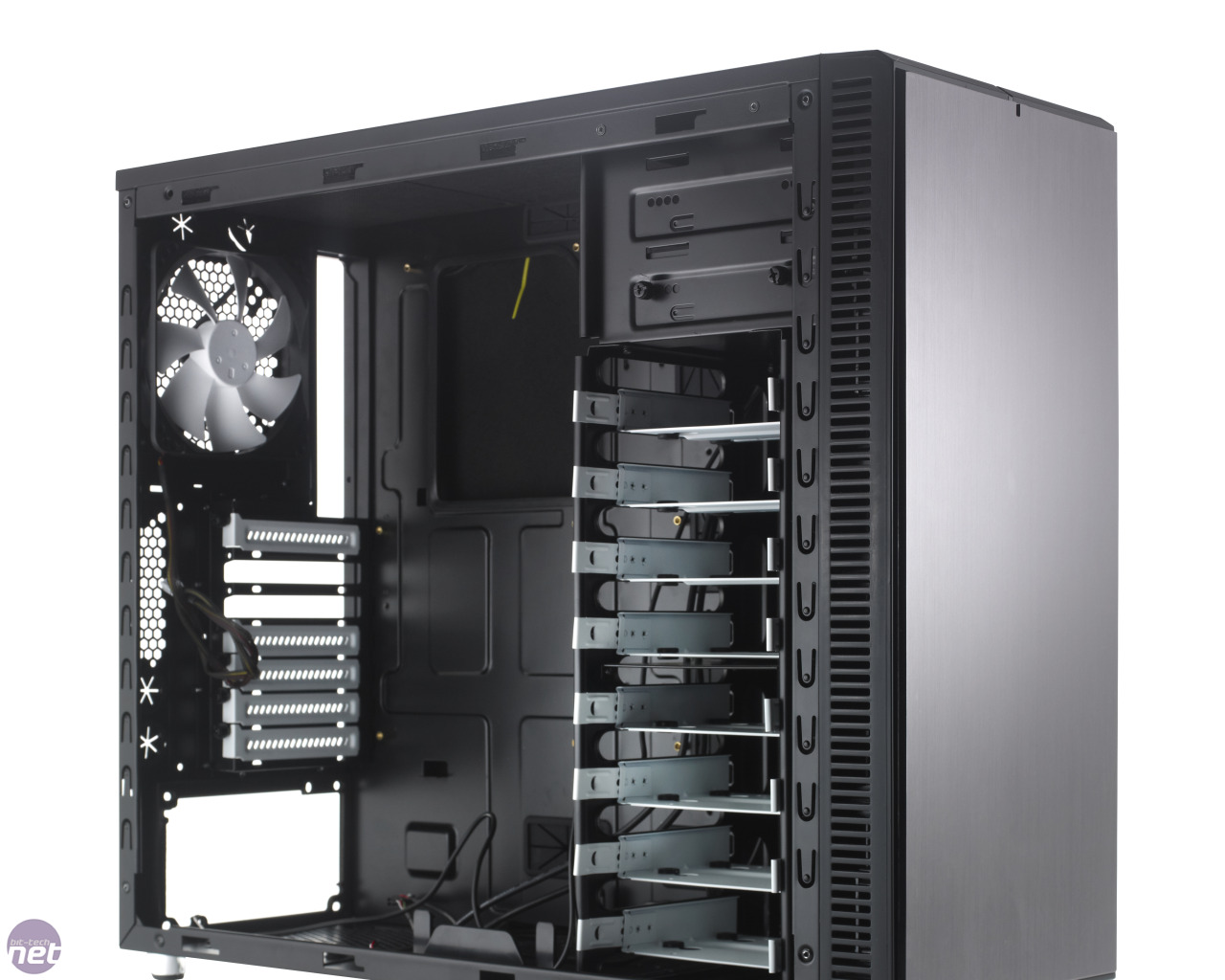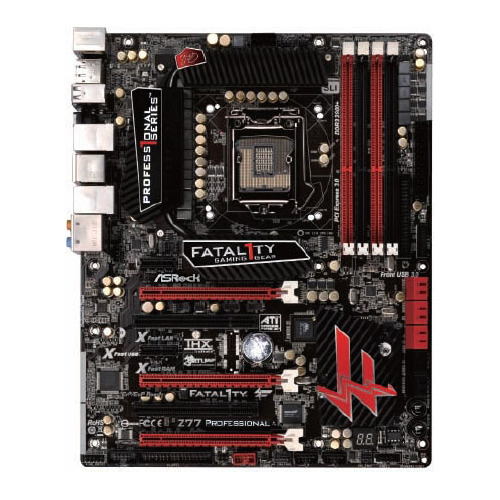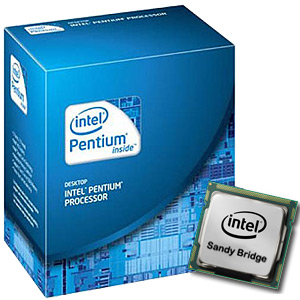BOT#00001
Registered User
- Joined
- Jan 3, 2008
- Messages
- 1,492
- Age
- 43
Well it's been a long time coming. I have too much data and not enough megs. Been wanting to create a dedicated server for a long time with RAID. Something I have NO experience with. I kinda wanna try linux, but I might just go windows 7 x64 because Im not comfortable enough with Linux, let alone trying to setup RAID for the first time. Hopefully someone on here is an expert with RAID and can give me a few tips. I've kind of settled on 10 I think. I like the redundancy of it over 5 and it has higher read times. I won't be writing to the fileserver a ton so thats not a worry. Anyways here is the build thus far. I'm filling in parts as I go and will update this thread (if anyone cares lol). This box will act as a server to stream video/audio to my HTPC and other machines. It will also store the bulk of my data from my primary box to offload some of the megs.
I'm creating two builds, one Intel and one AMD to compare the price/power usage/heat/performance.
Case:
Fractal Design Define R3 Midtower Case - $124.98

Case Fans:
Scythe SY1225SL12L (4x) - $10.99(x4)

PSU:
SeaSonic X750 Gold - $119.99(awesome one night deal, bought already)

Hard Drives:
Seagate Barracuda 7200 3 TB 7200RPM SATA 6 Gb/s ST3000DM001 (4x) - $164.99(x4)

Now is when they start differing
Intel:
Mobo:
Unknown: Have a few in mind, but will depend on what I learn about RAID. Looking for one with either integrated mobo vid, or integrated CPU vid(depending on which is cooler, just needs to be able to view the OS no gaming or anything graphically intensive). I def want pci 3.0 for raid cards if i need them. USB 3.0 on the outside at least a port or 2. Esata would be nice too. As many SATA 3 ports as possible)dunno if ill be using those or onboard sata) I plan on expanding to 8 HD's possibly at some point.
Heres one of the ones I found so far:
ASRock Z77 Professional LGA 1155
 - $229.99
- $229.99
CPU:
Intel Pentium G630T Sandy Bridge 2.3GHz - $84.99

RAM:
Havn't bothered yet, should be easy once I have the mobo locked down. Gonna go with a single 2 gig stick prolly, MAYBE 2x 2 gigs
CPU Cooler:
Havnt looked that hard yet. Trying to keep everything at around 12 dba, so I may get a big heatsink and take the fan off to see how she runs. The processor is only running at 35W i believe anyways.
AMD
Mobo:
Again, not locked in yet. Depends on RAID research. The integrated graphics CPUs seem to be limited to FM1 chipset and a min of 65W. This severely limits the choices in mobos. If I went AMD (leaning intel) Id prolly go with mobo integrated graphics. One I'm looking at:
ASUS M5A88-V EVO AM3+ - $114.99

CPU:
No idea yet.
CPU Cooler and RAM are the same as above.
As for the RAID questions I had...here goes:
I'm still torn between using hardware vs software though. Mainly the implementation of each.
If I go software:
Do I only use the SATA III ports and ignore any slower ports?
Do I also ignore any onboard SATA RAID ports?
If the SATA III ports on the mobo I choose are spread between two onboard controllers, does that cause an issue?
And if i go hardware:
Again, should I use the onboard SATA RAID ports?
If i do use those onboard raid ports, are they separate from any raid controller I add via pci
If i add multiple controllers via pci, are they independent of each other as well?
Does the speed of the PCI slot bottleneck the controllers at all?
If there are onboard RAID ports, with 2x on SATA III(@6 Gb/s) and 4x SATA II (@3Gb/s) will the speed difference cause any issues?
Also what are some good software solutions for RAID?
I Know I should put linux on this box..but with my unfamiliarity with RAID AND linux at the same time..I think it would be too tall of a hill to climb.
Prolly will just stick with Win 7 x64 Ultimate.
I'm creating two builds, one Intel and one AMD to compare the price/power usage/heat/performance.
Case:
Fractal Design Define R3 Midtower Case - $124.98

Case Fans:
Scythe SY1225SL12L (4x) - $10.99(x4)

PSU:
SeaSonic X750 Gold - $119.99(awesome one night deal, bought already)

Hard Drives:
Seagate Barracuda 7200 3 TB 7200RPM SATA 6 Gb/s ST3000DM001 (4x) - $164.99(x4)

Now is when they start differing
Intel:
Mobo:
Unknown: Have a few in mind, but will depend on what I learn about RAID. Looking for one with either integrated mobo vid, or integrated CPU vid(depending on which is cooler, just needs to be able to view the OS no gaming or anything graphically intensive). I def want pci 3.0 for raid cards if i need them. USB 3.0 on the outside at least a port or 2. Esata would be nice too. As many SATA 3 ports as possible)dunno if ill be using those or onboard sata) I plan on expanding to 8 HD's possibly at some point.
Heres one of the ones I found so far:
ASRock Z77 Professional LGA 1155

CPU:
Intel Pentium G630T Sandy Bridge 2.3GHz - $84.99

RAM:
Havn't bothered yet, should be easy once I have the mobo locked down. Gonna go with a single 2 gig stick prolly, MAYBE 2x 2 gigs
CPU Cooler:
Havnt looked that hard yet. Trying to keep everything at around 12 dba, so I may get a big heatsink and take the fan off to see how she runs. The processor is only running at 35W i believe anyways.
AMD
Mobo:
Again, not locked in yet. Depends on RAID research. The integrated graphics CPUs seem to be limited to FM1 chipset and a min of 65W. This severely limits the choices in mobos. If I went AMD (leaning intel) Id prolly go with mobo integrated graphics. One I'm looking at:
ASUS M5A88-V EVO AM3+ - $114.99

CPU:
No idea yet.
CPU Cooler and RAM are the same as above.
As for the RAID questions I had...here goes:
I'm still torn between using hardware vs software though. Mainly the implementation of each.
If I go software:
Do I only use the SATA III ports and ignore any slower ports?
Do I also ignore any onboard SATA RAID ports?
If the SATA III ports on the mobo I choose are spread between two onboard controllers, does that cause an issue?
And if i go hardware:
Again, should I use the onboard SATA RAID ports?
If i do use those onboard raid ports, are they separate from any raid controller I add via pci
If i add multiple controllers via pci, are they independent of each other as well?
Does the speed of the PCI slot bottleneck the controllers at all?
If there are onboard RAID ports, with 2x on SATA III(@6 Gb/s) and 4x SATA II (@3Gb/s) will the speed difference cause any issues?
Also what are some good software solutions for RAID?
I Know I should put linux on this box..but with my unfamiliarity with RAID AND linux at the same time..I think it would be too tall of a hill to climb.
Prolly will just stick with Win 7 x64 Ultimate.

